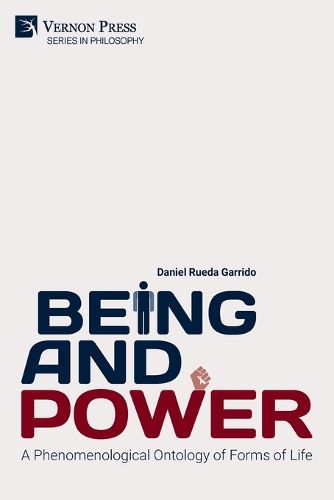Readings Newsletter
Become a Readings Member to make your shopping experience even easier.
Sign in or sign up for free!
You’re not far away from qualifying for FREE standard shipping within Australia
You’ve qualified for FREE standard shipping within Australia
The cart is loading…






This title is printed to order. This book may have been self-published. If so, we cannot guarantee the quality of the content. In the main most books will have gone through the editing process however some may not. We therefore suggest that you be aware of this before ordering this book. If in doubt check either the author or publisher’s details as we are unable to accept any returns unless they are faulty. Please contact us if you have any questions.
Why do we act as we do? Why do we assume that the way of being and behaving in our community is right, good, and common sense? Why do we fail to understand those who are, act, and feel differently? These are some of the questions that this book raises and attempts to answer. This ontology is rooted in the phenomenological tradition but with the innovation of taking the "form of life" as the central ontological unit. We are our form of life, but, as a transcendental-immanent reality, this is not directly equivalent to culture or society; it is rather the "political" realisation in the world of an image of the human being shared by a given community. This overcomes the traditional dualities of individual and society, consciousness and body, facticity and freedom, actuality and possibility. The subject is a subject because it identifies with that image, which is equivalent to the intersubjective consciousness of how one should act and be in the world. This gives rise to multiple forms of life. The latter implies a certain power to be who one wants to be. In this way, the book is an invitation to self-examination, for if our form of life is voluntary (i.e., capitalism), it shatters the illusion that one cannot live in any other way, and places us before the anguished but inevitable task of justifying its adoption or resorting to its abandonment. The book offers a dynamic analysis of human existence as the actualisation of a form of life that is, at the same time, the exercise of a certain power over those who seek to live otherwise, especially when that form is institutionalised by a government as the essence of the national or transnational community.
$9.00 standard shipping within Australia
FREE standard shipping within Australia for orders over $100.00
Express & International shipping calculated at checkout
This title is printed to order. This book may have been self-published. If so, we cannot guarantee the quality of the content. In the main most books will have gone through the editing process however some may not. We therefore suggest that you be aware of this before ordering this book. If in doubt check either the author or publisher’s details as we are unable to accept any returns unless they are faulty. Please contact us if you have any questions.
Why do we act as we do? Why do we assume that the way of being and behaving in our community is right, good, and common sense? Why do we fail to understand those who are, act, and feel differently? These are some of the questions that this book raises and attempts to answer. This ontology is rooted in the phenomenological tradition but with the innovation of taking the "form of life" as the central ontological unit. We are our form of life, but, as a transcendental-immanent reality, this is not directly equivalent to culture or society; it is rather the "political" realisation in the world of an image of the human being shared by a given community. This overcomes the traditional dualities of individual and society, consciousness and body, facticity and freedom, actuality and possibility. The subject is a subject because it identifies with that image, which is equivalent to the intersubjective consciousness of how one should act and be in the world. This gives rise to multiple forms of life. The latter implies a certain power to be who one wants to be. In this way, the book is an invitation to self-examination, for if our form of life is voluntary (i.e., capitalism), it shatters the illusion that one cannot live in any other way, and places us before the anguished but inevitable task of justifying its adoption or resorting to its abandonment. The book offers a dynamic analysis of human existence as the actualisation of a form of life that is, at the same time, the exercise of a certain power over those who seek to live otherwise, especially when that form is institutionalised by a government as the essence of the national or transnational community.